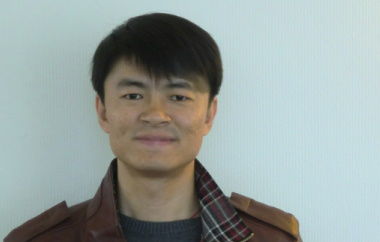PhD in Human Geography
Current position: Deputy Director of Geography Department, Lanzhou University, China
Research focus: industrial ecology and circular economy, coupled relationships between economic and environmental systems
China’s rapid industrialisation has come at a high price — resource depletion, environmental pollution, and major ecosystem degradation. To turn this trend around, China has launched a green growth initiative. Zilong, a lecturer in Circular Economy at Lanzhou University, is part of the process, helping China’s Gansu Province to establish a new paradigm for sustainable economic growth and development.
His interdisciplinary research on circular economy implementation has won him not only several academic awards but also the co-authorship of the Master Plan for Developing Circular Economy in Gansu Province, made him the go-to man for transforming the conventional linear economy into an efficient, closed-loop system where resources are reused and recycled to sustain growth.
CV as submitted for the Green Talents award (2012):
Institute of Human Geography, Lanzhou University, China
Research focus: industrial ecology and circular economy; coupled relationships between economic and environmental systems
China's rapid industrialisation has come at a high price – resource depletion, environmental pollution and major ecosystem degradation. To turn this trend around, China has launched a green growth initiative. Green Talents winner Zhang Zilong, a lecturer in Circular Economy at Lanzhou University, is part of the process, helping China's north-western Gansu Province establish a new paradigm for sustainable economic growth and development.
“The north-western reaches of China have been earmarked as a high-priority region for circular economic growth,” explains Zhang. “It’s a resource-rich area with fragile ecosystems, a highly diverse cultural make-up and an underdeveloped economy.” His interdisciplinary research on circular economy implementation has won him not only several academic awards but, as co-author of the Master Plan for Developing Circular Economy in Gansu Province, made him the go-to man for transforming the conventional linear economy into an efficient, “closed loop” system where resources are reused and recycled to sustain growth.
“I analyse the material and energy metabolism of the local social-economic system in order to understand the coupled mechanism between economic and environmental systems,” says Zhang. “From there we can start building regional industrial symbiosis systems based on waste recycling and begin developing targeted policies for sustainable development.”
Zhang impressed the jury with his innovative, solution-oriented research into the relationship between economic and environmental systems in circular economic development in China.






